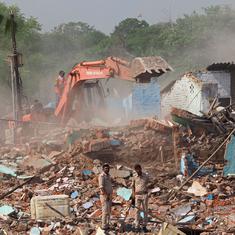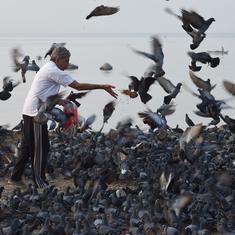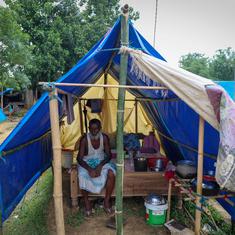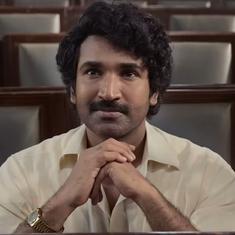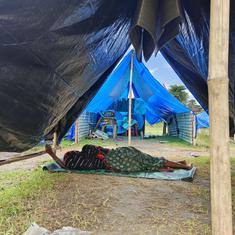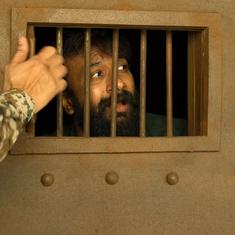Never has politics been so nasty, brutal and vindictive. Political language is marked by slights and slurs that were unknown in the past despite politicians holding contesting ideologies and contradictory viewpoints.
Today, the space for conversation between politicians representing Assam in the state assembly has shrunk beyond measure. The space for dissent in society has also shrivelled. The narrative that undocumented migrants are the bane of all that’s happening in Assam today; the relentless drive to dehumanise Bengali-speaking Muslims, thousands of whom are now homeless and without a country, has crossed out “human rights” from the political discourse.
Most of those rendered homeless in the state’s campaign against those it claims are encroachers are not necessarily Bangladeshi migrants but they carry the weight of being the consumers of what rightfully belongs to the sons of the soil (read Assamese).
Social media has only amplified such drivel. The latest burst of propaganda – that anyone speaking Sylheti is a Bangladeshi – by the functionary running the Bharatiya Janata Party’s media cell, Amit Malviya, has crossed all boundaries of political decency.
Bengal was the largest province in British India. Lord Curzon partitioned the Bengal province in 1905 on the plea that it was too large to be governed properly. Post partition, West Bengal included Western Bengal and the provinces of Bihar and Orissa. Eastern Bengal comprised Assam, Chittagong, Dacca, Rajshahi division, Tripura and Malda.
Mamata Banerjee’s reaction to Delhi Police referring to the language used by infiltrators as ‘Bangladeshi’ is not just misplaced, it is dangerously inflammatory.
— Amit Malviya (@amitmalviya) August 4, 2025
Nowhere in the Delhi Police letter is Bangla or Bengali described as a ‘Bangladeshi’ language. To claim otherwise and… https://t.co/Ynb5o8cT6n
Kolkata was the capital of British India and Bengal was the hub of the nationalist movement. It produced fighters like Subhas Chandra Bose, poets like Rabindranath Tagore to whom we owe the national anthem, social reformers like Raja Rammohan Roy and the physicist Satyendra Nath Bose. It was the British craftiness that divided Bengal into Hindu and Muslim majority sections.
After Independence, when East Bengal became East Pakistan, there were migrations to the Indian side of the border in the same manner that people from West Pakistan crossed to India at great cost to their lives. That’s why Sylheti. the language of Sylhet, is spoken by Bengalis in the Barak Valley, which used to be East Bengal and is Bangladesh today.
That period of history that caused so much trauma should have taught us that humans do better in a spirit of co-existence than in othering and hate-mongering. But humans hardly learn any lessons from adversity. And politics is the poisonous brew that drives this hatred. It is amplified by a section of the media that is more than willing to take sides.
And whose side does the media take? Not that of suffering humanity but of those wielding power, for, the media today is a watered-down version of itself.
Some decades ago. when US President Ronald Reagan was interviewed by a section of the media, he said, “In the present crisis, government is not the solution to our problems. Government is the problem.”
We could not agree more with Reagan on this. When those in government fail to deliver governance but want stint in power, they tend as elections approach to create issues not related to governance but issues that divide the polity.
In Assam today. it is a one-man government. We don’t hear voices that will calm the chaos. It’s as if the chief minister alone has taken upon himself the sole right of addressing the media. Assam society today is completely divided between Bengali Muslims and Bengali Hindus.
We are on a mission to RECLAIM what rightfully belongs to us.
— Himanta Biswa Sarma (@himantabiswa) July 30, 2025
Our forests, our lands, our Satras, our agriculture fields; we are going ALL OUT to ensure that only legitimate Indian citizens enjoy the joy of being in Assam.
Rengma Reserve Forest ~ now ENCROACHMENT FREE. pic.twitter.com/d0F9K8Qp8F
The Assamese, on the face of it seem united, more so the gentry which equates development to flyovers and malls that appear on the Guwahati skyline. The social order is broken. For the casual observer it would appear that the Assamese gentry has absolute faith in Himanta Biswa Sarma to deliver them from a fate that has its genesis in the Partition.
Is this a rational aspiration? The overt and covert support to the present government tells us that the space for dissent has shrunk and that protests have become obsolete.
Today, politics is driven purely by divisiveness and hatred. Day after day, TV channels and YouTubers carry out a vicious campaign against Muslims as if they do not deserve to live. Thousands of them are reduced to a life that hangs by a thread in what is the most inhuman treatment meted out to them.
Sadly, the Assamese gentry is led to believe that this is what the Miya Muslims of Bengali origin deserve. Today we have reached a point in this country when asking hard questions from the ruling establishment turns you into a Pakistan sympathiser or an “anti-national”. Never in the past, not even during the Emergency, did we feel this sense of repression that we feel today.
And look at how the law is stood on its head. The Assam chief minister glibly states that only Muslims are being evicted from what is termed as “encroachment” on forest and other categories of lands while the indigenous people can continue to occupy such lands because they are genuine citizens. Does the law allow such discriminatory practices?
In this anti-Muslim atmosphere, even neighbouring states are not spared. The Assam chief minister is hell-bent on bringing to its knees the University of Technology and Management located on the Meghalaya side of the Assam-Meghalaya border simply because its chancellor and founder is a Muslim. Which right-thinking politician will want to bring down an institution merely out of personal pique?
He has large sections of the population backing him. “Under the BJP and Himanta Biswa Sarma, we are seeing visible development,” is their refrain. The question is, development at what cost?
When democracy is at risk, enlightened citizens, intellectuals and civil society are expected to put the brakes and say, “enough is enough.” But there’s a complicit silence here. One wonders what lectures on democracy are being given in colleges and universities in Assam. We need political catharsis before an entire generation forgets the core principles of democracy.
Patricia Mukhim is the editor of The Shillong Times.
